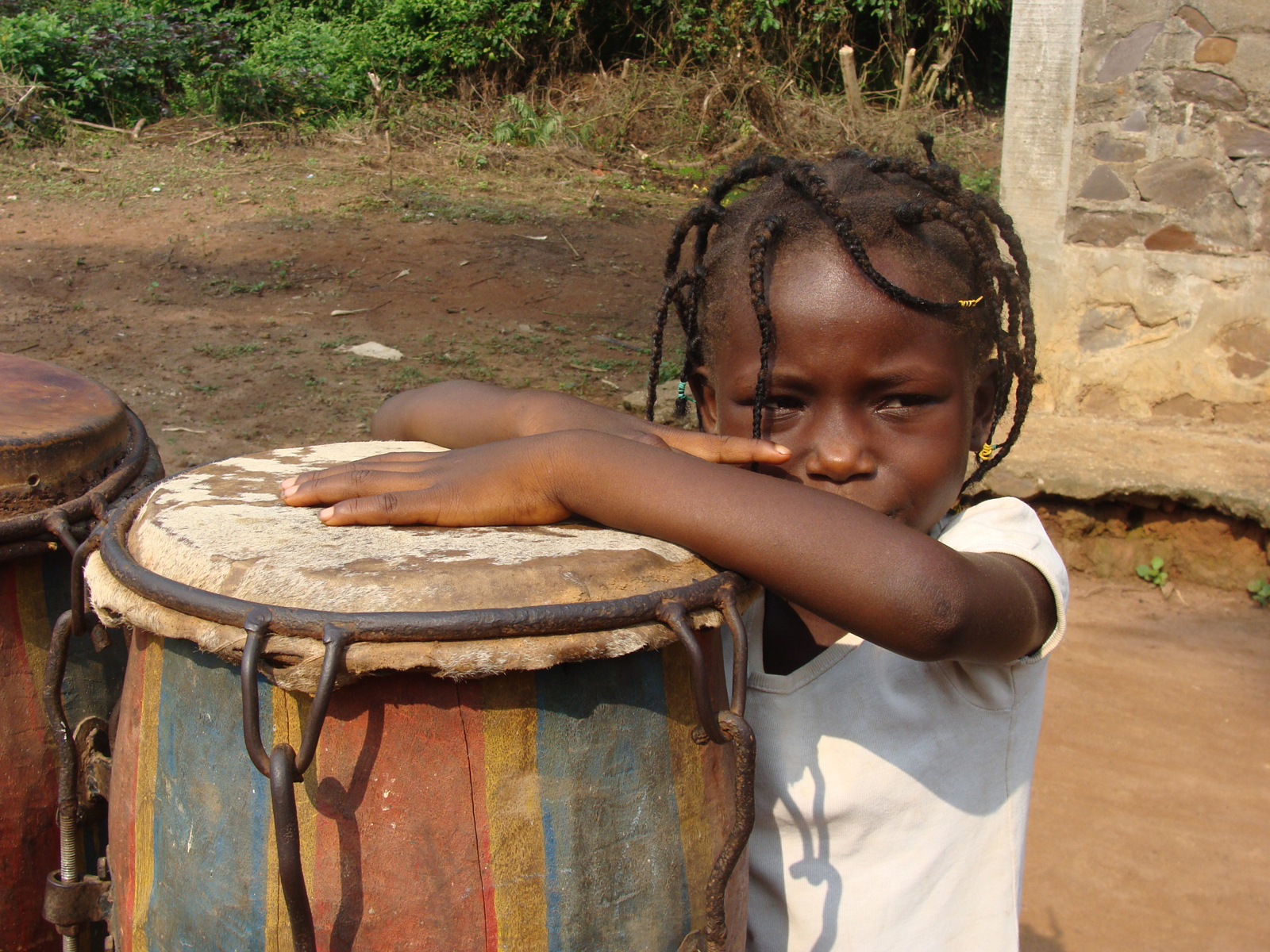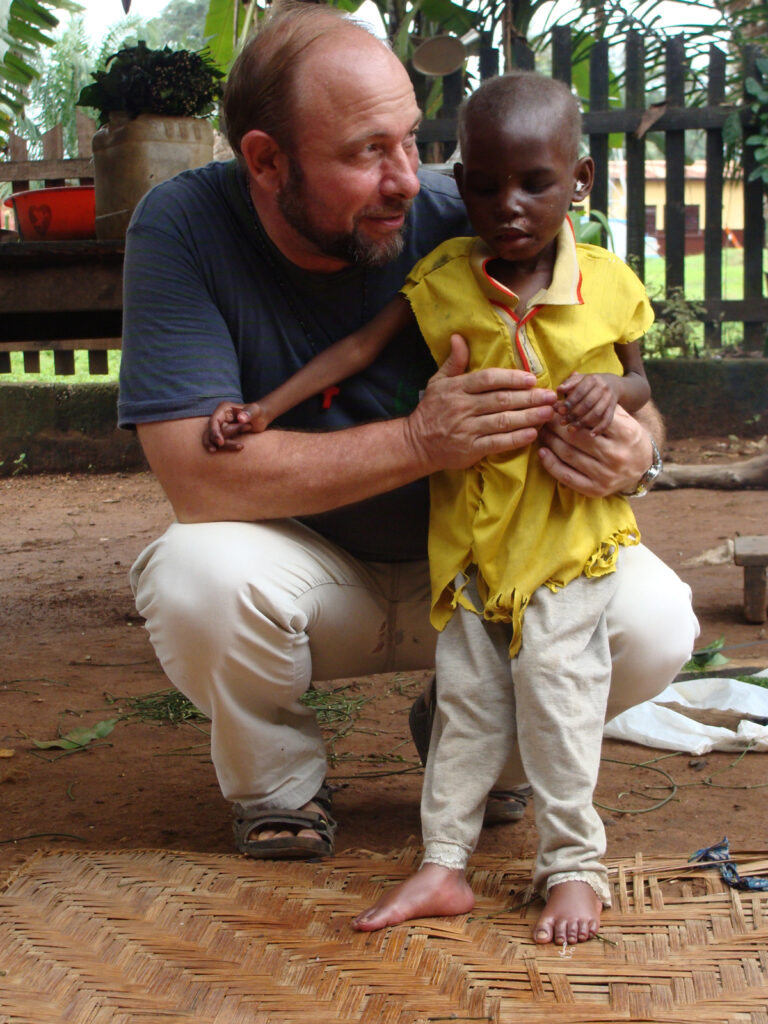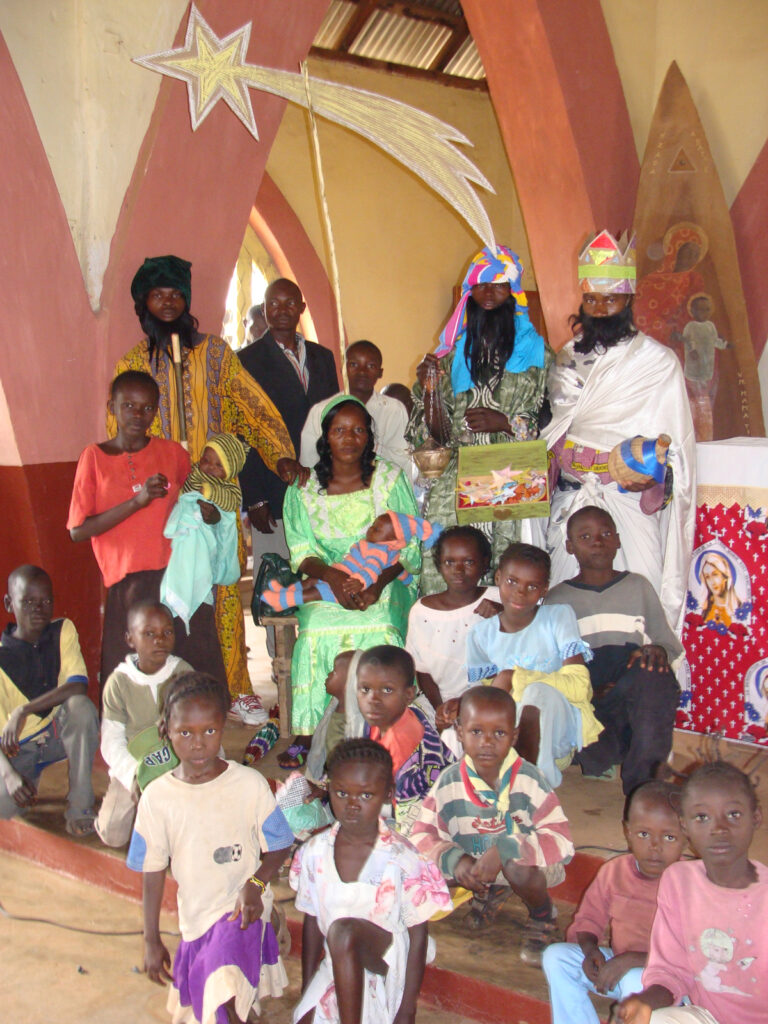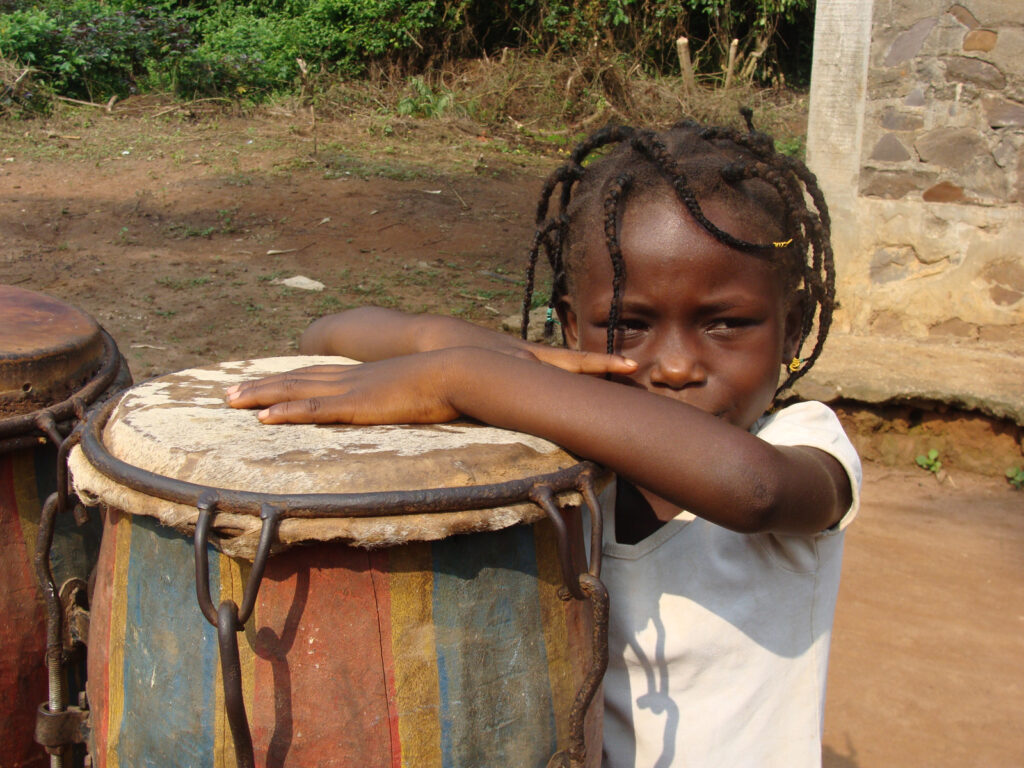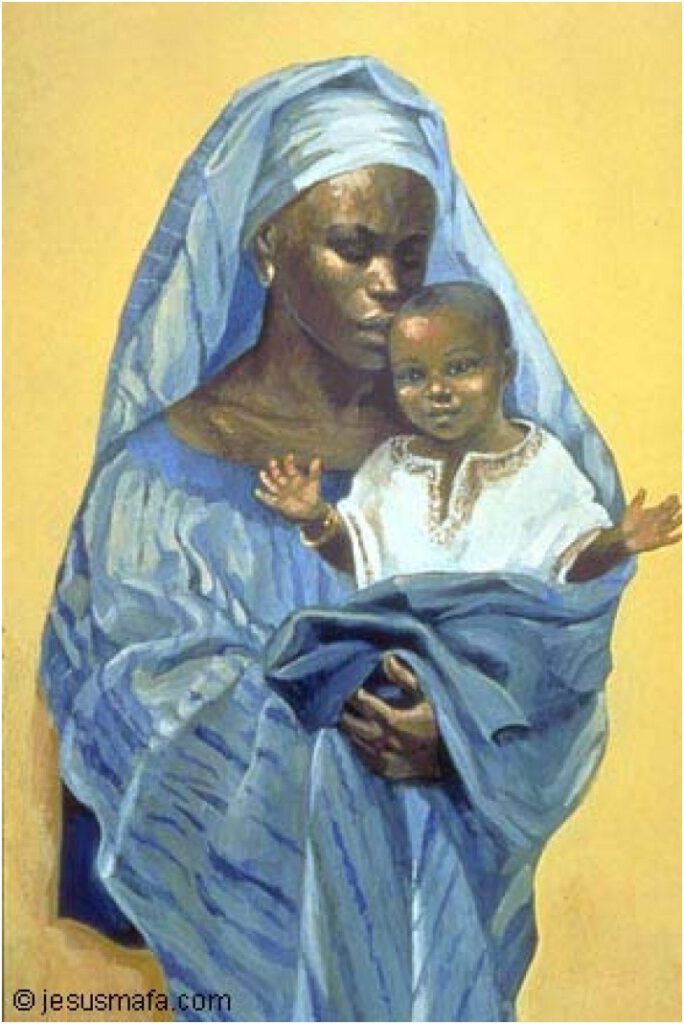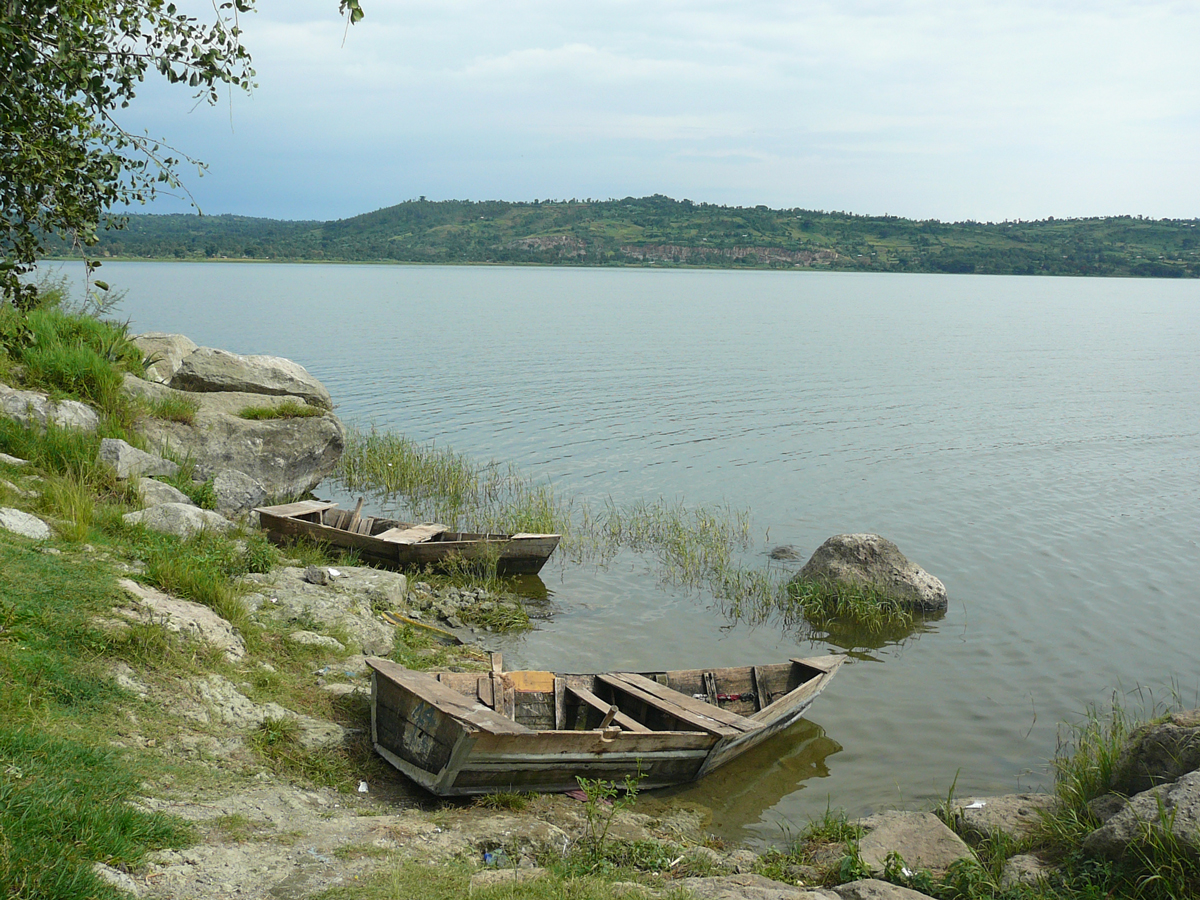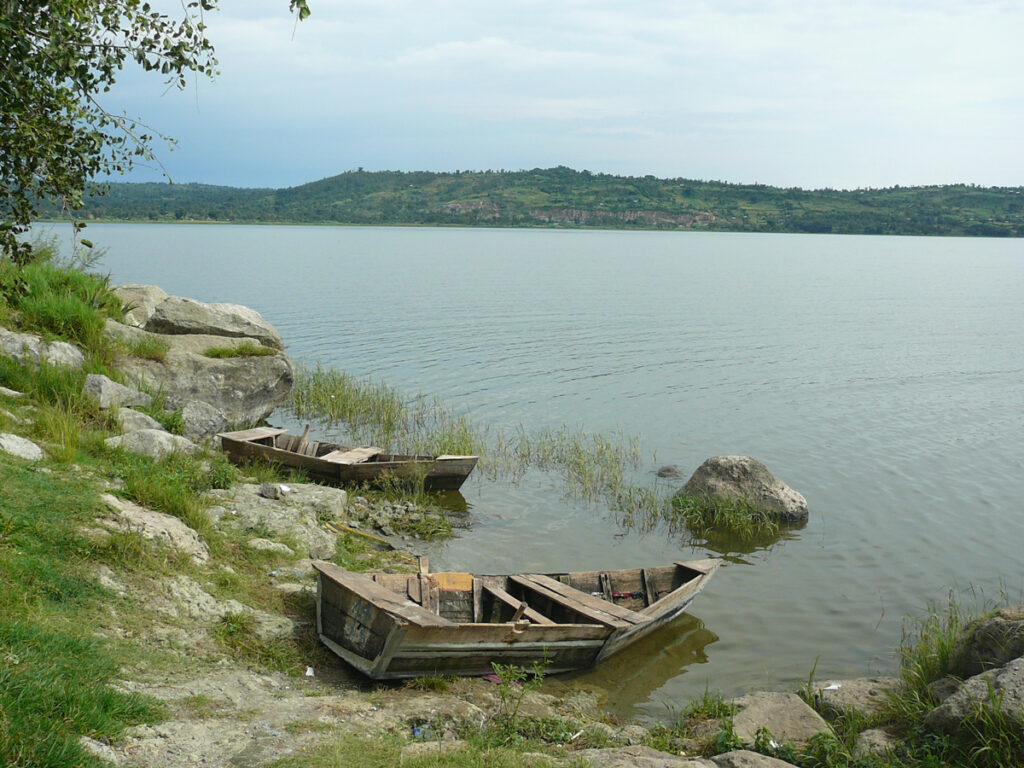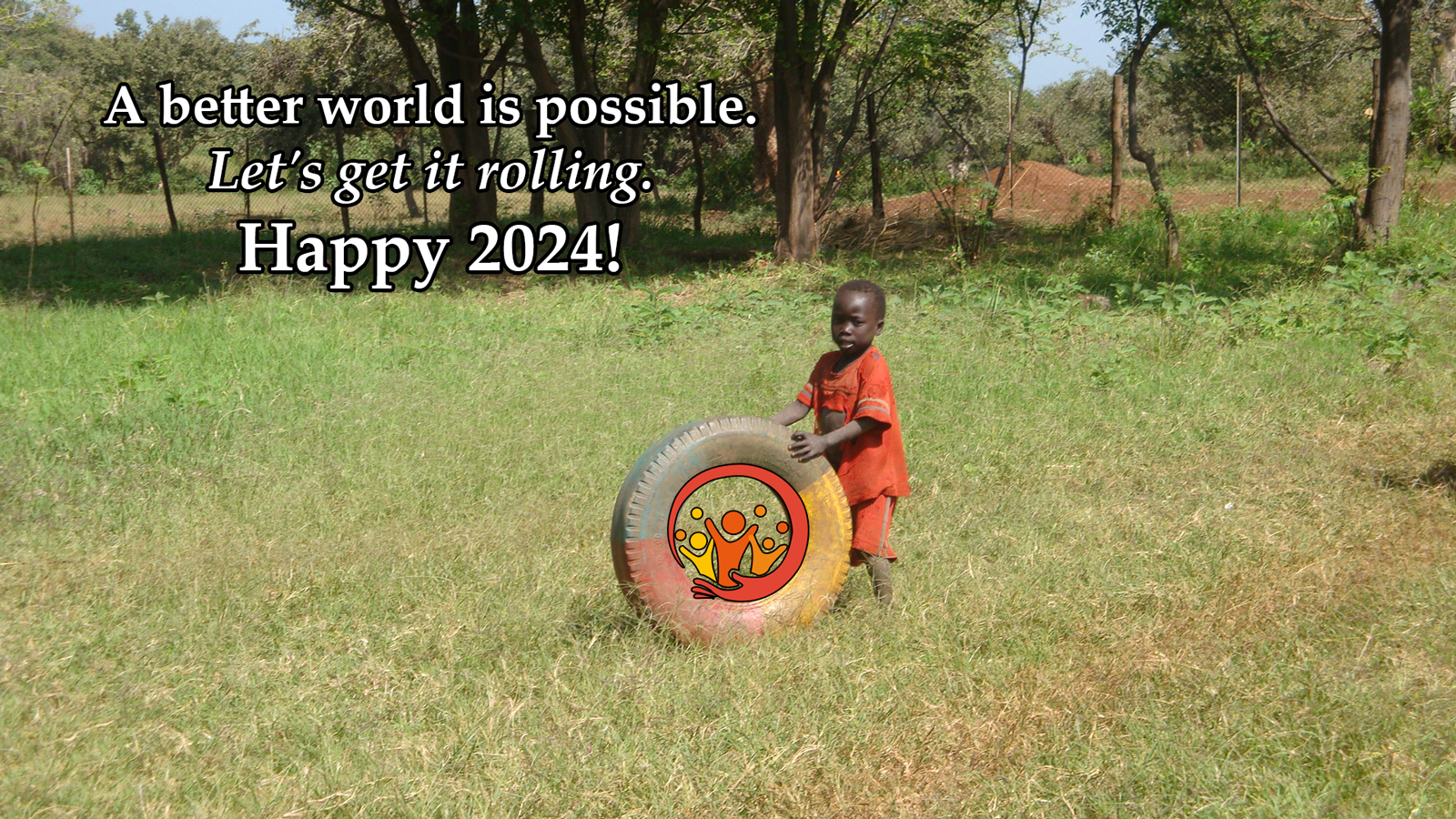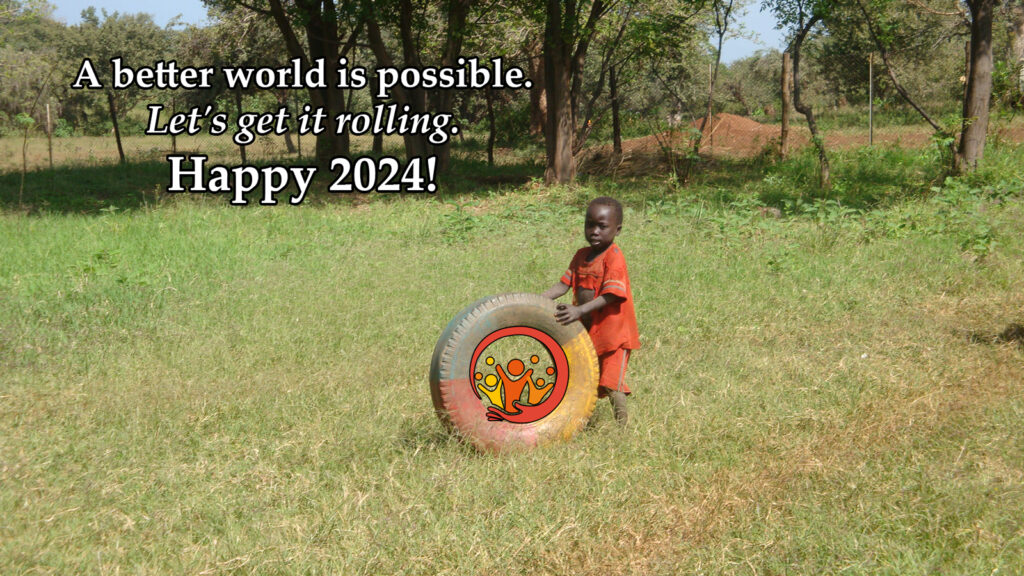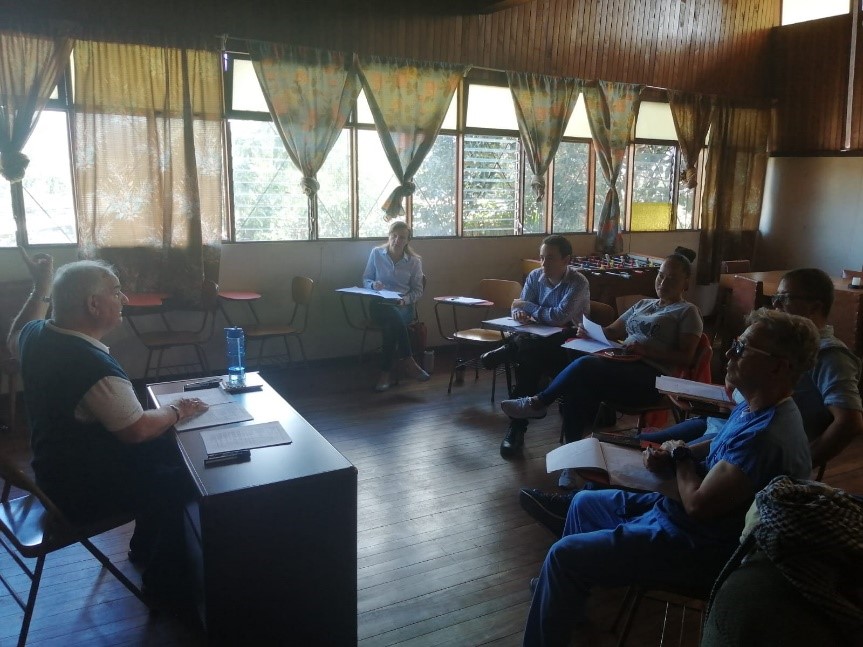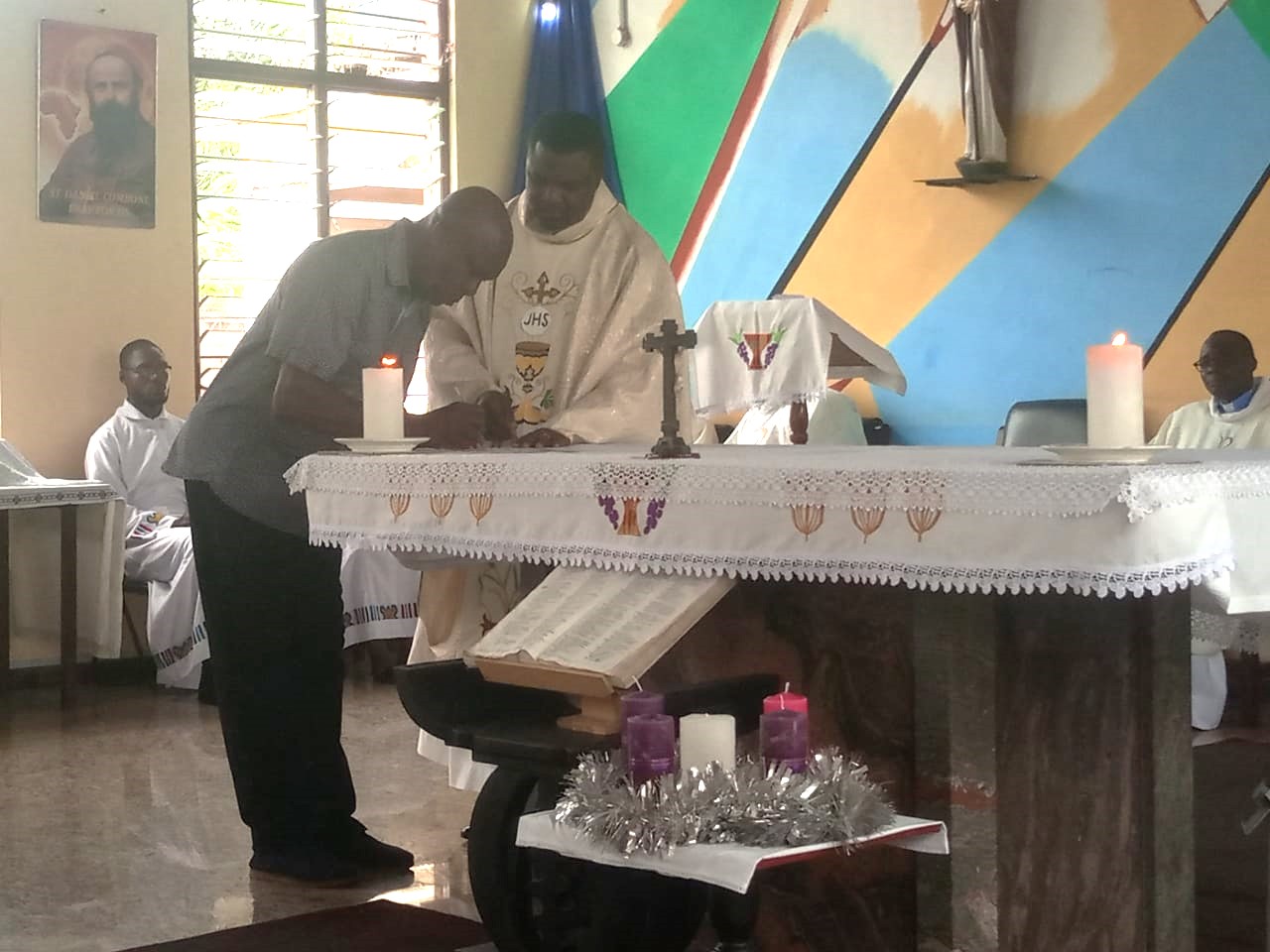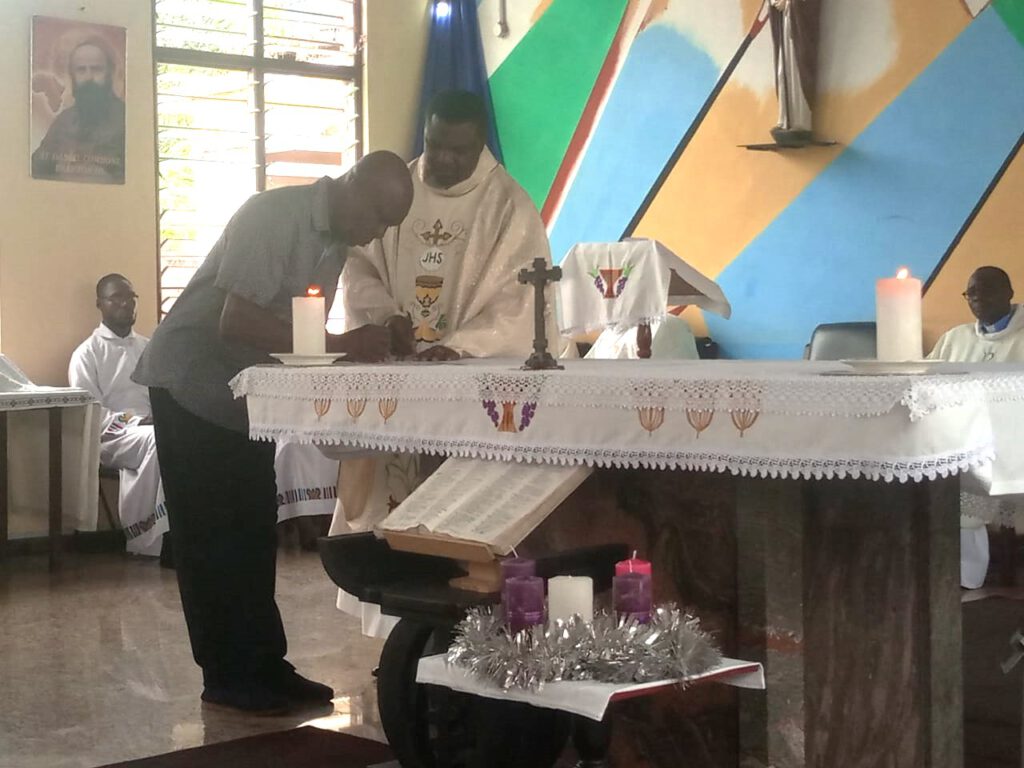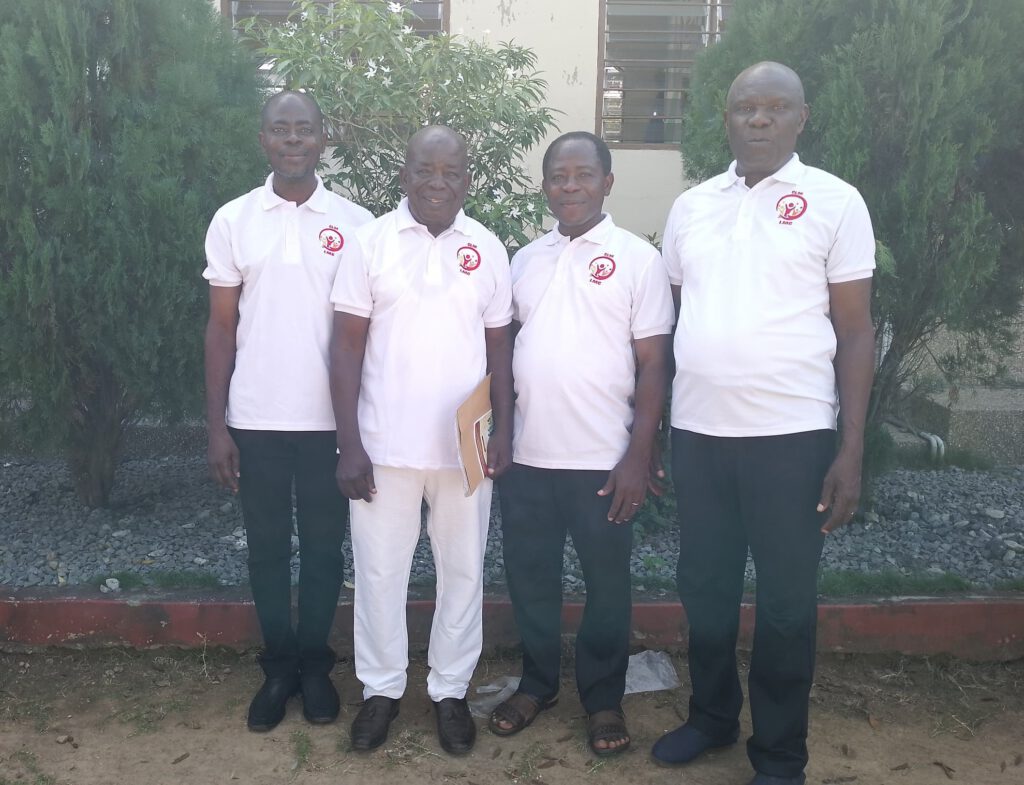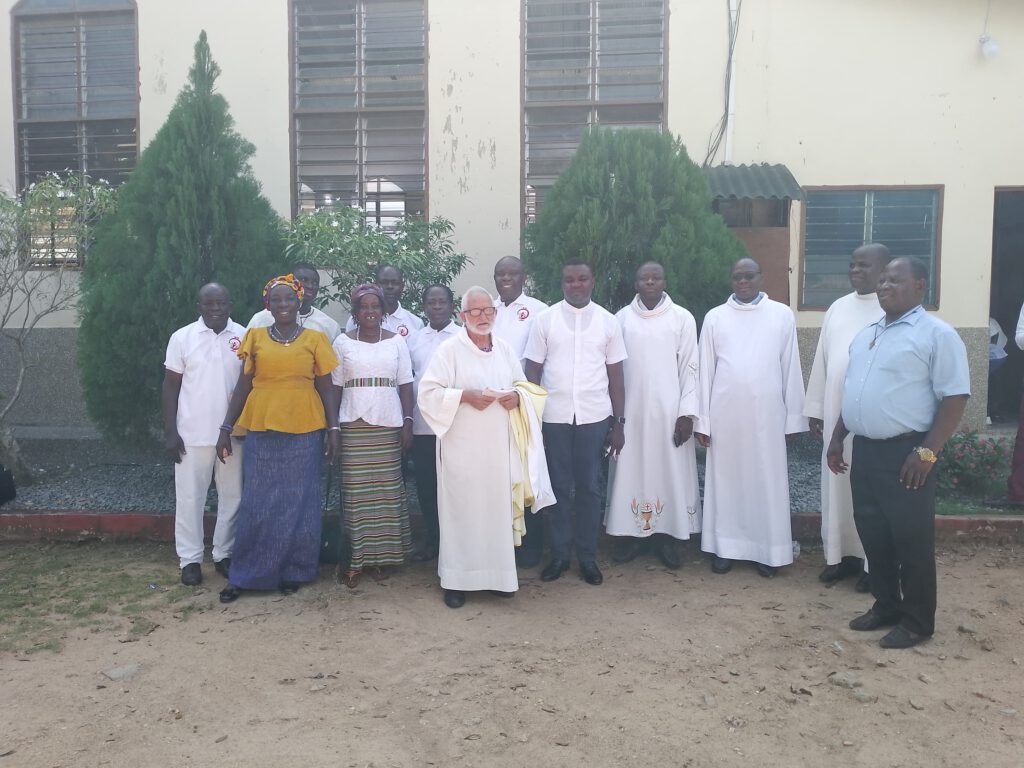Christmas Message by Bishop Jesús Ruiz, Bishop of M’baiki, Central African Republic.
Every day in Africa is Christmas… Everything in Africa speaks of an eternal Christmas!
I have been asked to make the Christmas proclamation…; I do not know how to proclaim.
What is this proclamation, I asked myself…, if not to give voice to your inner life…? So, allow me to give free expression to my heart… I am going to proclaim to you.
My proclamation today wants to be a childhood memory in the parish market of Alfonso VI around Christmas time. It was the 1970s. With our parish priest Don Miguel, we used to go up the hill of San Juan to look for moss and decorate the crib full of cork houses, silver rivers and figures walking towards the portal… My memory goes to the rooster mass with the family followed by a glass and nougat…; my memory enjoys seeing the catechists dressed as the Three Wise Men during the children’s Mass handing out gifts…; always gifts, never coal.
I grew up… and I discovered that the real nativity scene is outside… As a seminarian, in the new parish church, every Christmas, with Ester, Mamen and other young people, visiting the houses of the neighborhood for the nativity scene contest… In each house a glass of sweet liquor and a piece of nougat was always waiting for us…; every year we rehearsed in the choir non-commercial Christmas carols that were all the rage: “uri, uri, ura…” and “in the stone doorway was Mary and Joseph, Mary was crying, Joseph was nervous…” Christmas visiting the poor of the parish with gifts and food in order to accompany their loneliness….;
36 years ago I went to Africa…, but I…, I don’t know how to proclaim…
There, in Africa, I discovered that Christmas is not colored lights, nor Christmas trees…; there, without Christmas carols or advertising claims for Christmas… without marzipan or nougat… but there is Christmas; in Africa it does not snow…, no; it is hot, very hot for Christmas. In my Africa it is not customary to have a Christmas Eve dinner and even less the reveillon…, nor is there a lottery for El Niño or the Christmas jackpot…. How I remember my first Christmas in Africa in a distant chapel where, after celebrating the mystery of a Child God born on the outskirts, I had dinner alone, with great emotion, with a tin of sardines that I carried in my bag…! No…, in Africa, our way of doing Christmas is not fashionable…// The only thing I miss in Africa are the Three Wise Men who never come…, and I am afraid they will never come… What a pity that my children in Africa do not dream of Three Wise Men… for Christmas…! I ask King Balthazar every year, you who are black, why do you forget my black children…, without passing? And I pray with strength, come, Three Kings, come… thousands of black and good children, with big white eyes, are waiting for you…!
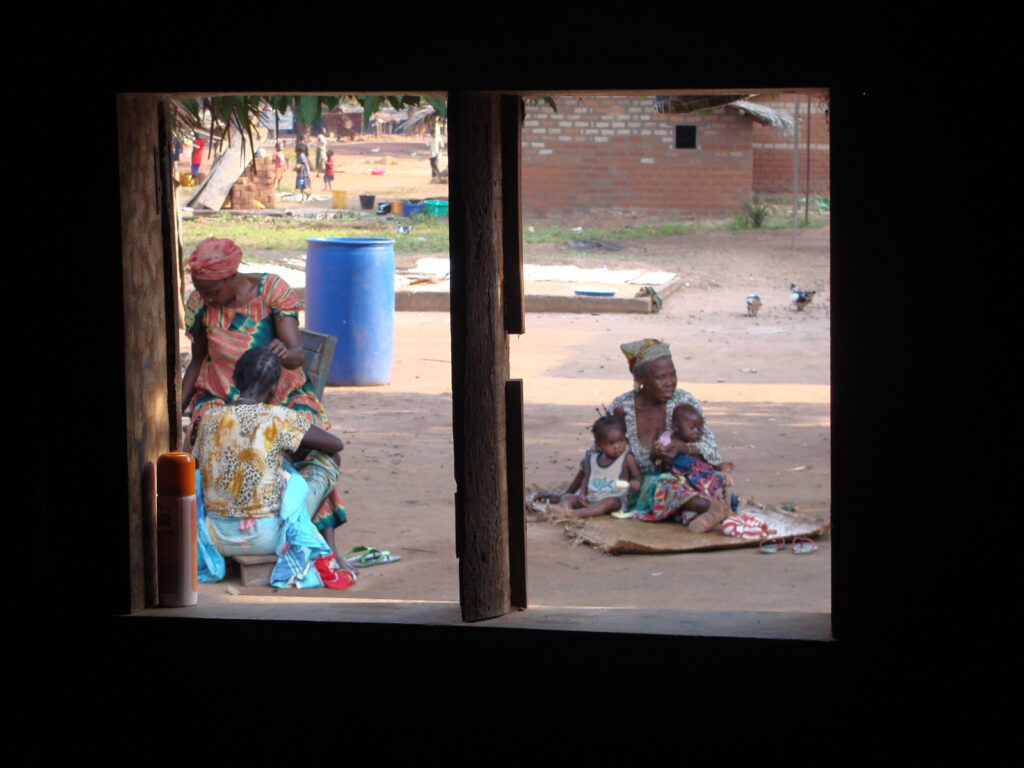
And every year I realize that Christmas is not on the twenty-fifth of December… Every day in Africa is Christmas… Everything in Africa speaks of an eternal Christmas! The people, like a living nativity scene, on roads of red earth and dust, advance day by day, despite their sorrow… Some suffer…, others rejoice…, some cry… some scream… and others can’t take it anymore…; some dance… some mourn… and others laugh without stopping… All of them without knowing it, searching… Like living figures of mud they walk without stopping… There the woman with her cassava on her head, upright as she walks…, a young man from his kiosk contemplates the children dancing… There, men of tanned skin by the sun walk towards their orchard to work…, toothless old men sitting in front of their homes, watching the motorcycles pass by like cabs…, in each concession children playing at jumping…, a girl carrying her little brother behind… All, like living mud figures, even without knowing it…, all walk towards the portal… Each one their own way, each one their own song…, but all in the same direction without knowing it, they all go to adore. And they all give you a sincere smile if you greet them as you pass by… Each one with each one, each one with each one making their way as they walk… They all go looking for…, figures of rainbow without equal, in that great Bethlehem that is humanity… And when the evening falls, tired… at the feet of the newborn, their bodies rest, that is their way of worshipping. They have no gold, no silver, no gifts to give…, but their tiredness becomes an offering difficult to match. They hunger for food and thirst for truth… hunger for justice and peace…, hunger for love and also for dignity. No…, in my Africa the people do not put nativity scenes of clay and cardboard, nor ox or donkey in the portal… That is them, my people…, that great living Bethlehem, not decorated, that every day I meet as I pass by… I, figurine of that Nativity scene, I join them in adoration.
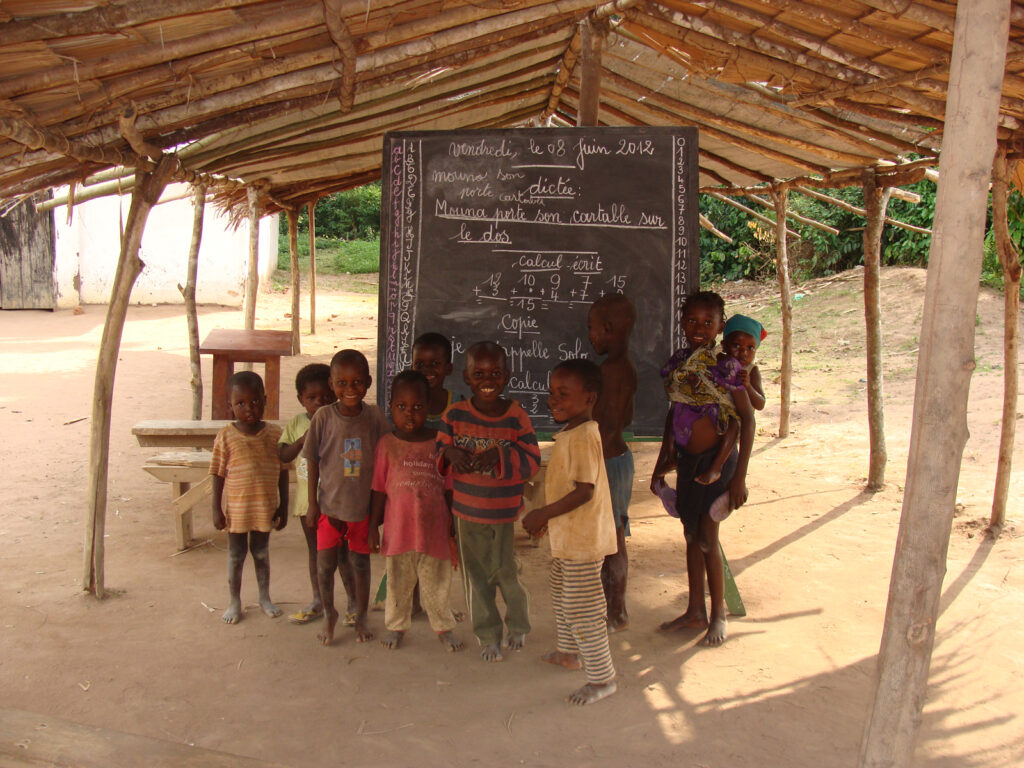
They go looking for the one who has been born, they are hungry for bread and truth… / They grope their way, many times in the dark… / I grope my way with them, sometimes improvising a song… / The joy in their heart is the star that guides them… and tells us where to go / Joy because they go to adore the King of the heavens… / Like little shepherds…, they go with chickens, cassava, peanuts, bananas… and firewood… / They always advance because they want to adore the Child… Like the Three Wise Men they will bring their gifts; not gold, nor incense, nor myrrh… No… Their gifts are their simple and hard lives, all of them they will offer to the heavenly King. And each life is precious offering that to the Child God will please… And seeing them Mary and Joseph adore… from their lips a pleased smile will escape.
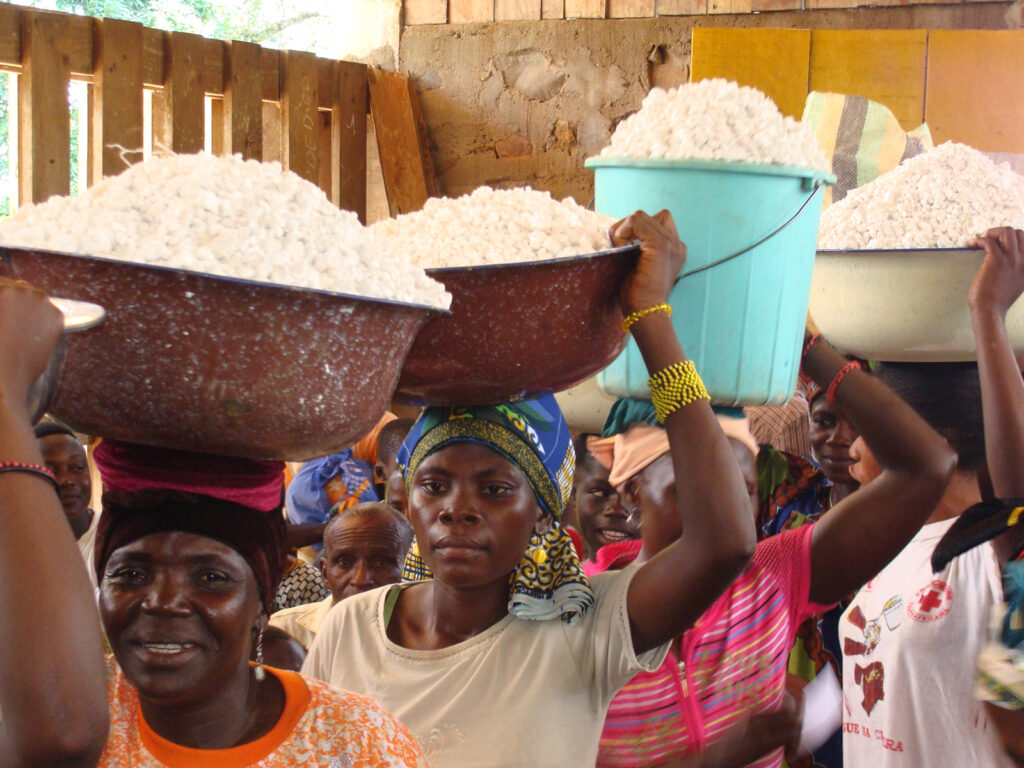
Oh, when I am out of Africa, how I miss this my other Christmas…, without lights, decorations or advertising claims of ephemeral happiness… Now I understand that Christmas is the life of my people who seek the Light in the midst of so much darkness… Today, lost in the city that saw me grow up, I also search and search for that little Child to adore, while lights, shop windows and loudspeakers insinuate me… Here there is no Child to adore!
When I was a child, every Christmas, there was always some hooligan who stole the Child from Antonio Machado’s park for Christmas… Today that I am grown up, I would like to shout: They have stolen the Child once again…! They have changed him for a colorful pine tree with artificial lights…, they have replaced him with Santa Claus… They want to sell us all kinds of products to fill our happiness… But who will give us the tenderness of the Child…, the love of the Child God, who can replace it…; his marvelous light, not artificial, who can illuminate…?
Friends, be alert, they are stealing the Child from us with this unbridled consumption where the poor -like the child of Bethlehem- are always left on the outskirts of the city… “Friends, wake up…, they are stealing the Child from us… for Christmas…” Friends, wake up, they are stealing the Child… for Christmas…
Friends, it is urgent to react because they are killing the Child…, for Christmas; they are killing thousands of them in the Gaza strip…; they let tens of thousands of them die of hunger in Africa…; they allow them to drown with their parents in the open sea… They do not know that God becomes a Child in the migrant, in the refugee, in the poor and in the one who can no more… As in old times in Bethlehem, today they say: “there is no place for you… go elsewhere for with us you cannot dwell…” Friends, brothers… what a tragedy! Like Herod in another time, today in 2023, they are…; we are… killing the Child… for Christmas.
It is as if this crazy world of ephemeral colored lights and spinning drunkenly full of itself were saying: No, do not come Child to earth for you have nothing to give…! We are so full of ourselves…, so satisfied… what can a Child give us? No, do not come for Christmas.
Friends, brothers… let us wake up, let us unite, let us save the Child… let us revive Christmas!
Saint d’Exuperi, the author of “The Little Prince”, said that “all old people were children at the beginning, although few of us remember it”. Brothers, friends, let us recover the Child within us… now that it is Christmas.
Yes, Christmas is God’s tenderness towards humanity.
Christmas is an embrace to the grandfather… Christmas is a caress to the child…
Christmas is an open smile…
Christmas is to look with love into the eyes of the stranger and of the poor…, without judging…
Christmas is to visit the sick and the lonely….
Christmas is to ask forgiveness…; and to embrace one’s brother….
Christmas is to contemplate the newborn and raise our eyes to heaven….
Christmas is to accompany a piece of the path of the one who cannot go on any longer…
Christmas is to leave the comfort of your home to accompany the family that is having a hard time…
Christmas is to denounce this unjust world and to commit oneself for a more equal one…
Christmas is to enter the temple of your heart… and there to adore God…
Christmas is a gift… ALL A GOD WHO GIVES HIMSELF.
Allow me to tell you a Christmas story to end:
“It was getting close to Christmas in our town….
One of the big toy stores had stocked up generously in order to satisfy all the requirements of its customers… On the shelves you could see everything. Plastic and tin armaments with strange flags to defend against the enemy, they said…; there were also monsters in terrible television taste. Of course, there were also many other nice and gift-worthy things in the Christmas cheer.
Among these was a beautiful, oversized teddy bear. It really was cute. It seemed to convey affection, and its beady little eyes gave it a strange life that captivated those who would look at it with interest. It was a valuable toy, and therefore not cheap. And Teddy knew it. Without delusions of grandeur, he felt he was among the best that could be obtained in that place.
That was just his drama. Because those who had enough money to buy it had no children to give it to. And those who had many children lacked money.
Being valuable was the cause of their problems. Because as Christmas Eve approached, Teddy saw how the shelves were emptying of toys, while he continued to be admired, but no one decided to buy him for the joy of a child.
The anxiety that had been growing over the hours turned into anguish when he saw the owner of the toy store slowly lowering the heavy metal curtains of the toy store. Then the lights went out and silence reigned inside. From outside, on the other hand, came all the bustling Christmas festivities.
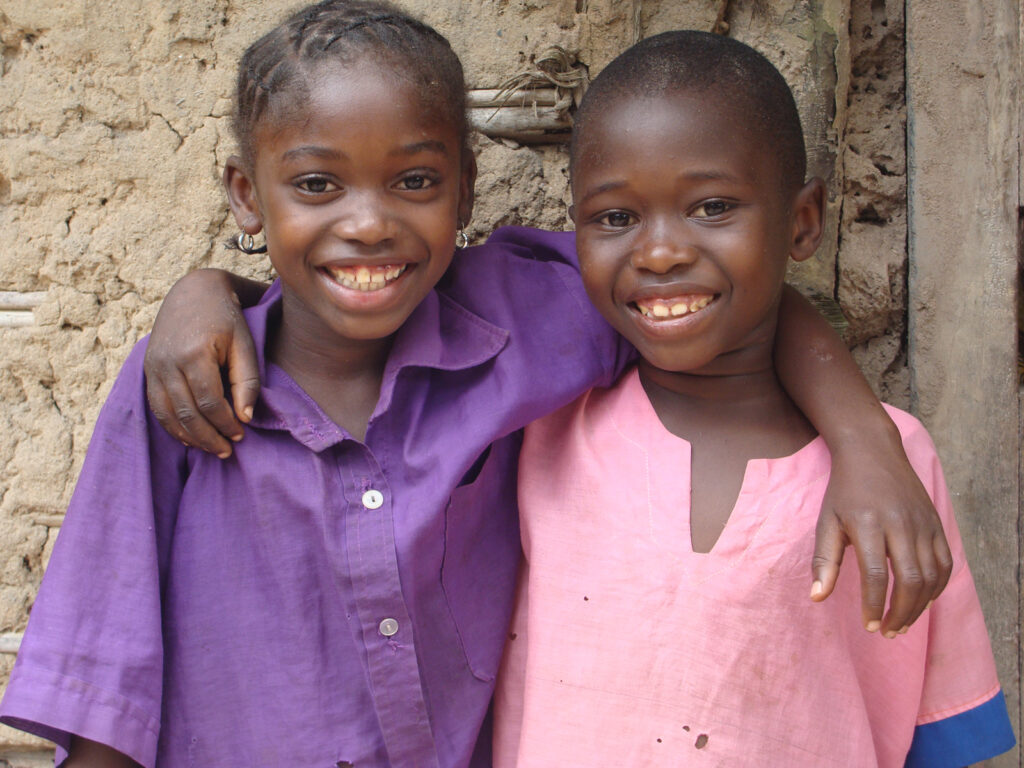
In the darkness, Teddy felt like crying. He realized that he would spend the first Christmas of his life in the saddest way imaginable. Alone and with no one to share all the precious things he felt he possessed. What hurt him the most was knowing that he had been left alone precisely because he was valuable. If he had been cheap, he would already be in someone’s hands, sharing the party, if only for a few hours.
Suddenly he was startled. Thinking he was dreaming, he saw the room lit up with a soft, beautiful light. And his little eyes sparkled with astonishment when he saw Jesus himself, who had entered the toy store with a big bag in his hand. He had come to get toys in order to distribute them himself. Because you have to know that here, it is their parents who bring gifts to the rich kids. While to the poor ones, God sends them.
Teddy was certain that this time someone would take him with him to be the joy of a child. This Lord had many children, and he was rich enough to pay his price and buy him. He waited, therefore, anxiously, to be approached.
When he stood before him, the Lord looked at him – as no one had ever looked at him before – and addressed him quite naturally:
– Teddy, will you join me this Christmas Eve to distribute gifts to the poor children of the neighborhood?
And since the word of the Lord is powerful and gives life to all to whom it is addressed, Teddy felt a strange trembling come over his whole body. He jumped off the shelf and, doing four ram turns on the floor, he began to dance full of joy. If he hadn’t been stuffed, he would have made an infernal noise. But nobody felt anything. Mostly because everyone was so busy celebrating Christmas. They were so busy that they didn’t even see Jesus with his bag over his shoulder and Teddy by the hand, walking through the streets on his way out. There were those who, upon seeing him from behind, thought he was a homeless man, accompanied by his little dog. It is so easy to mistake the Lord with a poor man… and even more so at Christmas time!
When they gained the outskirts of the village, Teddy was astonished. He saw for the first time the night of the fields. The sky was boiling with stars. In the distance, dogs and roosters were pointing out where the poor people lived.
– “How beautiful the night is”, exclaimed Teddy.
– “Especially if you hold my hand”, said Jesus.
And so they visited the houses on the outskirts. When they approached a poor house, the dogs met them. The dogs of the poor do not bark. They go straight for the lump. But when they discovered that it was Jesus who was coming, they would immediately jump up and down.
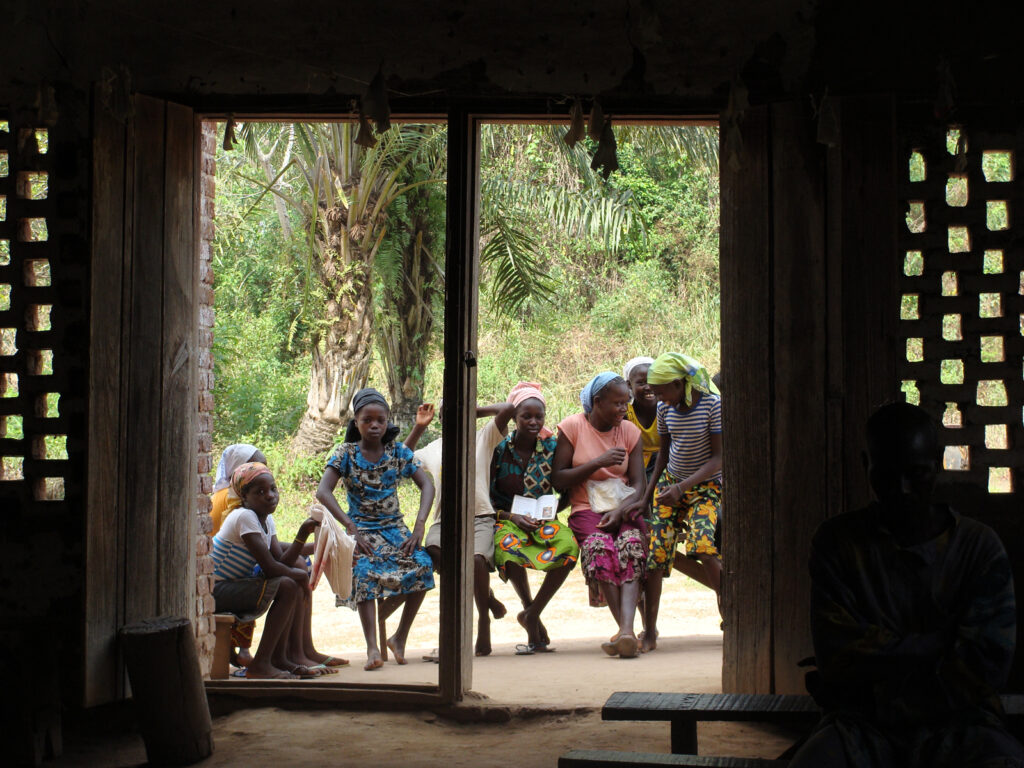
And while the Lord was caressing them to entertain them, Teddy would take a gift out of his bag and sneak in through the open window and leave it next to the sleeping children.
And he would still stay a little while to watch them smile in their sleep. As it happens at Christmas.
And so the night went on. When the day was about to dawn, Jesus said to Teddy:
– Look, now we are still going to visit Mrs. Matilde’s house. The best of the gifts must be for her granddaughter, who is sick.
And again, while the Lord amused himself with Mrs. Matilde’s dogs, Teddy looked in the bag for the best gift. But he discovered to his surprise that there were no more gifts. It was completely empty. And perplexed, he told Jesus. But the latter, winking at him, as if he already knew the matter, told him:
– “Do like me: Give yourself as a present!”
Note: It was never known in the neighborhood how Mrs. Matilde managed to get her granddaughter such a beautiful gift. And there were even malicious people who suspected of her… They are such thieves, the poor… If you get close, they steal your heart.
Brother…, sister… Christmas is you… be teddy bear… give yourself as a present.
Christmas is me…
No, I’m not a herald, I don’t know how to proclaim…, just a clay and cardboard figure looking for the Child on his way to the portal…
I have found the Child; rather, I have let myself be found… This is my proclamation to give: Let’s go together to adore!
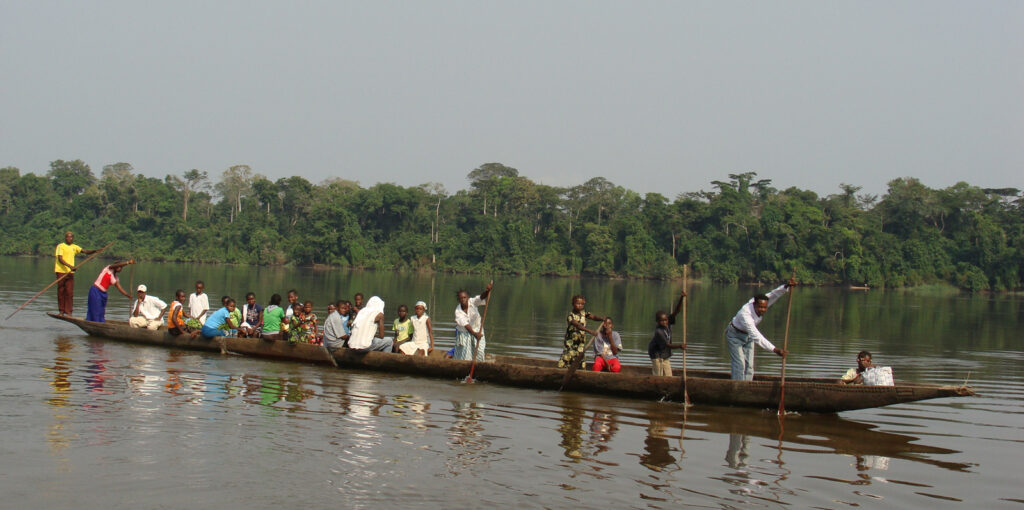
MERRY CHRISTMAS!
Miranda de Ebro (Spain), December 18, 2023




